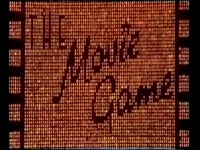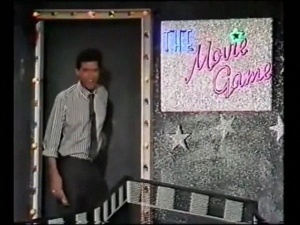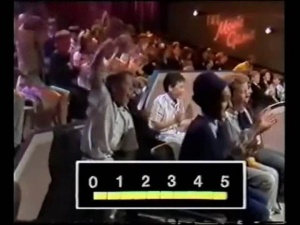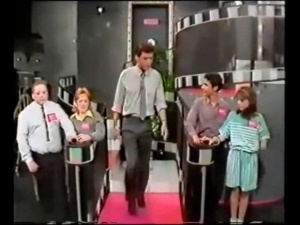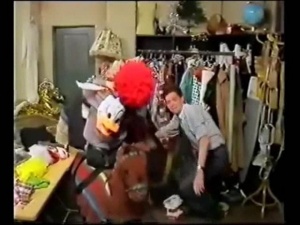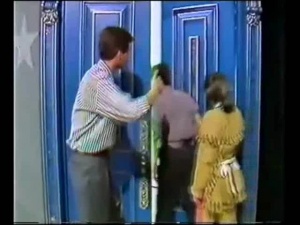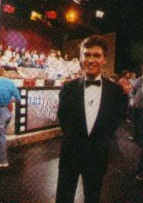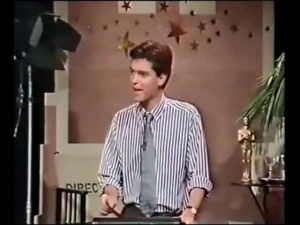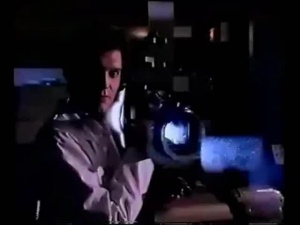The Movie Game (1)
(4:3 pictures tend to be best at 300px wide.) |
(→Synopsis: Jokes I fear we best avoid. Sadface.) |
||
| Line 39: | Line 39: | ||
The team that got through to the last space first won the whole game (regardless of points) and the best prizes but only the top so-many winners with the best scores went through to the final where the prize was inevitably a trip to Universal Studios or something. | The team that got through to the last space first won the whole game (regardless of points) and the best prizes but only the top so-many winners with the best scores went through to the final where the prize was inevitably a trip to Universal Studios or something. | ||
| - | <div class="image">[[File:Themoviegame1988doors.jpg|300px]]''And the winners get to visit | + | <div class="image">[[File:Themoviegame1988doors.jpg|300px]]''And the winners get to visit the CBBC dressing-up room for the day.''</div> |
== Key moments == | == Key moments == | ||
Revision as of 09:33, 9 July 2017
Contents |
Host
Phillip Schofield (1988-90)
Jonathon Morris (1991-3)
John Barrowman (1994-5)
Broadcast
BBC1, 8 June 1988 to 25 December 1995 (95 episodes in 8 series + 3 specials)
Synopsis
It's a kids game about movies. That just about says it all really, but it was a kids show with some nice touches.
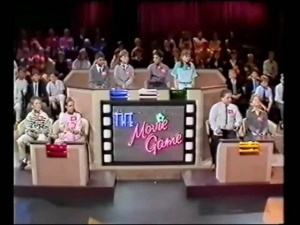 The contestants get ready to put their movie knowledge to the test (with 1988 series winners Sarwar Uddin and Jenny Bates in the green team).
The contestants get ready to put their movie knowledge to the test (with 1988 series winners Sarwar Uddin and Jenny Bates in the green team).Three teams of two played film observation rounds, quick-fire rounds and the like in order to win points. One of the more inventive rounds of the show was that throughout the show the teams would be given a genre of film, a famous star, a prop and a sound effect and throughout the show they would write a short script and plot of a film which they would have to act out with relevant use of the prop and sound effect and each one would be marked out of ten on the audience clapometer (if we remember correctly). The team with the least points go home, but they may well have gone home with The Movie Game clapperboard. Which is nice.
The other two teams now go through to a board game-style end game. In its original incarnation it was a set of stairs in the style of a roll of film, but it soon changed to just an ordinary board (eh?). Along the way were three special squares which would either be marked out with a door or they would be magically transported via the power of special effects. Through each of these doors would be a special mini game which may involve costumes or a special guest. Some of these were action-based, others required some sort of basic practical skill which fit in with the history of movie making (make these sound effects to fit this story or something). They would be marked out of ten for their efforts and the mark is added to their score.
To advance round the board the players have to answer questions. They could decide on their go whether they wanted 2 space, 3 spaces or they could use a once-only special called Fast Forward which was four spaces (and was accompanied by a stupid noise). Only the first pair to make it to the special spaces got to play them, and if they were wearing any costumes during the game they would be forced at gunpoint to wear it around the rest of the board.
The team that got through to the last space first won the whole game (regardless of points) and the best prizes but only the top so-many winners with the best scores went through to the final where the prize was inevitably a trip to Universal Studios or something.
Key moments
The absurdly crowded series finals meant that the Red, Green and Blue teams were joined by teams coloured Orange, White, Puce, Tartan and Marzipan.
Theme music
Stan Shaw
Trivia
There was a behind the scenes feature on this show in the 1989 Just Seventeen yearbook, from which we glean that among the tasks in the 1988 series final were making a souffle while blindfolded (difficult enough without the blindfold, surely?) and sticking as many posters on a wall as possible within two minutes. The series champs were Sarwar Uddin and Jenny Bates, both 12 in 1988, who got to meet Steven Spielberg at Elstree Studios.
Web links
Pictures
Videos
An episode from 1994.

